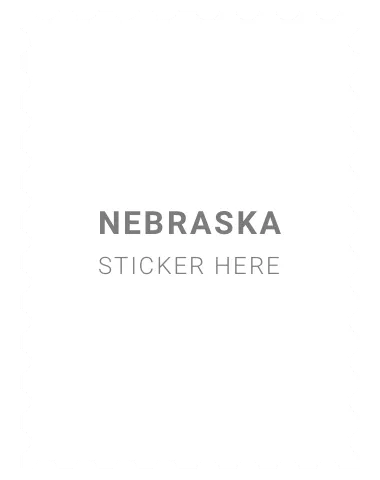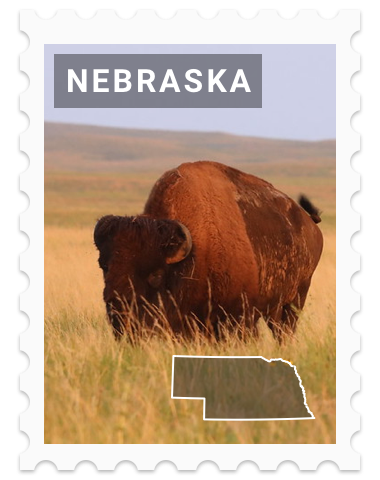Nebraska
Discover Nebraska

Capital
Lincoln
Statehood
March 1, 1867
The history of Nebraska is closely tied to the Platte River, which served as a vital artery for early pioneers and traders, including those on the Oregon Trail. As they traversed the Great Plains, they encountered vast herds of bison and the diverse indigenous cultures of the Pawnee, Omaha, Otoe, and other tribes who had long inhabited the area.
The mid-19th century brought the completion of the First Transcontinental Railroad, uniting the eastern and western coasts of the United States. Promontory Summit in Utah may have been the symbolic meeting point, but the railroad's impact on Nebraska was profound. The town of North Platte, with its iconic Golden Spike Tower, pays tribute to this era of rail travel.
Nebraska's history also bears the scars of the Civil War, as it was a battleground for both the Union and Confederate forces. Fort Kearny, originally established to protect travelers on the Oregon Trail, saw military action during the conflict.
In the late 1800s, Nebraska witnessed a great influx of European immigrants, particularly from Germany and Czechoslovakia. These settlers brought with them a rich cultural heritage that still thrives today. In places like Wilber, Nebraska, Czech traditions are celebrated with fervor.
Source ChatGPT
Major Airports
Eppley Airfield

Elevation
300 m
Opened
1925
Runways
3
Ottawa Macdonald–Cartier International Airport

Elevation
115 m
Opened
1960
Runways
3





